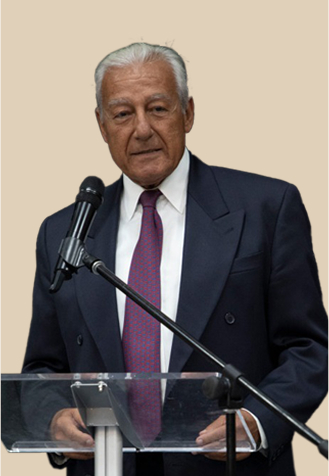ADC Raises Concerns with DNI McConnell During Second Intelligence Community Heritage Summit
Washington, DC | May, 16 2008 | www.adc.org | Today, the American-Arab Anti-Discrimination Committee (ADC) participated in a meeting with Director of National Intelligence (DNI) Mike McConnell and other representatives of US government intelligence agencies. McConnell addressed the Second Intelligence Community Heritage Summit which was sponsored by the Office of the Director of National Intelligence. The Summit provided an opportunity for community leaders to meet with senior officials from various US government intelligence agencies to address challenges in an open dialog. Members of the media were present.
ADC was represented by National Executive Director Kareem Shora. At the meeting, ADC provided background on the proactive and constructive outreach work it has done with the FBI and US Department of Homeland Security (DHS) to improve understanding and dialog. ADC distributed materials on ADC‘s Diversity Education and Law Enforcement Outreach Program (LEOP), which has provided in-person cultural competency training to over 15,000 law enforcement officials since its establishment in 2002. ADC also provided information highlighting the negative impact of post-9/11 US government policies on the Arab and Muslim American communities. ADC raised policies such as the National Security Entry-Exit Registration System (NSEERS) program, continued confusion over the use of “watch lists,” and the perceived profiling of Arabs and Muslims during security background checks as examples that continue to negatively affect the image of the US Government within the Arab and Muslim American communities.
ADC addressed the US Government‘s focus on the Arab and Muslim American communities in its analyses of “radicalization” and the threat of “homegrown terrorism.” ADC cautioned against continuing this focus by citing recent attempts to link these communities with these threats including the deeply flawed and now-discredited 2007 New York Police Department study on domestic radicalization that claimed that typical “signatures” of radicalization include wearing traditional clothing, growing a beard, or giving up cigarettes, drinking, and gambling. ADC mentioned last week‘s Senate Homeland Security and Government Affairs Committee report on “homegrown terrorism.” Earlier this week, the Senate report drew strong reservations from four of the country’s leading Arab-American and Muslim-American advocacy organizations which issued a rare joint letter expressing concern. See: https://www.adc.org/PDF/CHSletter.pdf
ADC also highlighted the increased detentions of US citizens at the border and the lack of an effective public redress process to verify a person‘s identity through the FBI‘s Terrorism Screening Center (TSC). ADC encouraged DNI McConnell and other officials from the intelligence community agencies to work with their counterparts at the US Department of Justice and the US Department of Homeland Security (DHS) to address these concerns. DHS and FBI officials also attended the Summit.
ADC also raised the lack of data collection of hate crimes reported against Arabs and Middle Easterners through the FBI‘s annual hate crimes report as another example with negative implications on the relationship between the Arab-American community and US government agencies. While the FBI reported a significant increase in hate crimes committed against Muslims in the United States following the September 11, 2001, terrorist attacks, it has no public mechanism to-date that provides the rate of hate crimes reported based on perceived ethnicity against Arabs and Middle Easterners.
Finally, ADC raised the 22-year old investigation and $1-Million reward concerning the 1985 terrorist attack that killed Alex Odeh; ADC‘s Southern California Regional Director. Odeh was murdered on October 11, 1985, when a powerful pipe bomb exploded as he unlocked and opened the door of the ADC Regional office in Santa Ana, California. In addition to killing Odeh, the bomb injured several other victims. The lack of US government action in pursuing those wanted for questioning overseas in the Odeh investigation, and the fact that this has been an ongoing investigation for over two decades, gives the perception that US government agencies may not lend the Odeh terrorist attack the same weight as other terrorism investigations. For more information see: http://www.fbi.gov/wanted/seekinfo/odeh.htm
Recent Posts
Action Alerts

Your support means everything. Your gift protects rights, builds community, and fights hate. Let’s move forward together.
